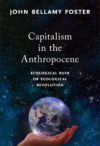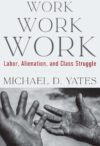Class

The success of the telecommunications industry in India has been heralded as a “miracle.” But a miracle for whom? The answer, Rahul Varman writes, has clearly been the capitalist class, who, over three decades, have amassed tremendous wealth and power through the machinations of large firms, in collusion with the Indian government. | more…

How the Workers’ Parliaments Saved the Cuban Revolution brings us to the heart of one of the most precarious and transformational moments in Cuba’s evolution. As the Soviet Union fell to pieces in the 1990s, Cuba managed to evade the fate of its primary trading ally. How was this possible, especially as Cuba endured relentless attacks from the capitalist behemoth directly to its north? | more…

New York City is facing a crisis in its urban ecosystem. As wealthy developers and real estate mega-projects rupture the connections between people and the social and spatial webs making up the city’s once-rich undergrowth, how can city-dwellers nurture and restore their metropolitan habitat? | more…

Over the last 11,700 years, during which human civilization developed, the earth has existed within what geologists refer to as the Holocene Epoch. Now science is telling us that the Holocene Epoch in the geological time scale ended, replaced by a new more dangerous Anthropocene Epoch, which began around 1950. The onset of the Anthropocene Epoch is characterized by an “anthropogenic rift” in the biological cycles of the Earth System, marking a changed reality in which human activities are now the main geological force impacting the earth as a whole, generating at the same time an existential crisis for the world’s population. | more…

For most economists, labor is simply a commodity, bought and sold in markets like any other – and what happens after that is not their concern. Individual prospective workers offer their services to individual employers, each acting solely out of self-interest and facing each other as equals. The forces of demand and supply operate so that there is neither a shortage nor a surplus of labor, and, in theory, workers and bosses achieve their respective ends. Michael D. Yates, in Work Work Work: Labor, Alienation, and Class Struggle, offers a vastly different take on the nature of the labor market. | more…

Capitalism’s two main underpinnings are control and exploitation/expropriation. While there are many sites of control they are all generally supportive of the interests of capital, namely, the endless drive to accumulate wealth. They all help to ensure that we behave so that the system continues to reproduce itself. Since workplaces are the sites where profits are extracted from our labor, it is here that control is most critical. | more…
The Council on Foreign Relations (CFR) is the ultimate agenda-setting, strategic planning, and consensus-forming organization of the U.S. capitalist ruling class. The latest book to come out of the CFR orbit, Strategy of Denial (2021), thus provides an opportunity to concretely observe how the monopoly capitalist ruling class is preparing the people of the United States for what could be a catastrophic world war. | more…

Eleanor Burke Leacock taught that transhistorical, universal male dominance is a myth, not a fact. Writing during the grimmest period of Cold War reaction, Leacock put forward a critique of the mainstream U.S. ideology, which took for granted the idea that there were only two genders, in binary opposition to each other, and that these were the direct product of so-called male and female nature. | more…

The widespread view on the left that Marx had adopted an extreme productivist view of the human domination of nature—and hence had failed to perceive the natural limits to production and ecological contradictions in general, giving them at most only marginal attention—was contradicted by his theory of the metabolic rift. | more…

The job of socialists is to engage with public policy from a class perspective, informed by a Marxist understanding of contemporary capitalism—not to reform it, but to abolish it. | more…

One of the key components of U.S.-China strategic competition is the technology war, the essence and implications of which can be further understood in the broader context of the international division of labor and the two countries’ internal contradictions. From this front, we can decipher the antagonism between different classes/groups within and across the two countries. | more…

How Social Class Influences Political Life
In order to understand what is happening in the United States, in the aftermath of the presidential election, one needs to comprehend the distribution of power in the country. | more…









